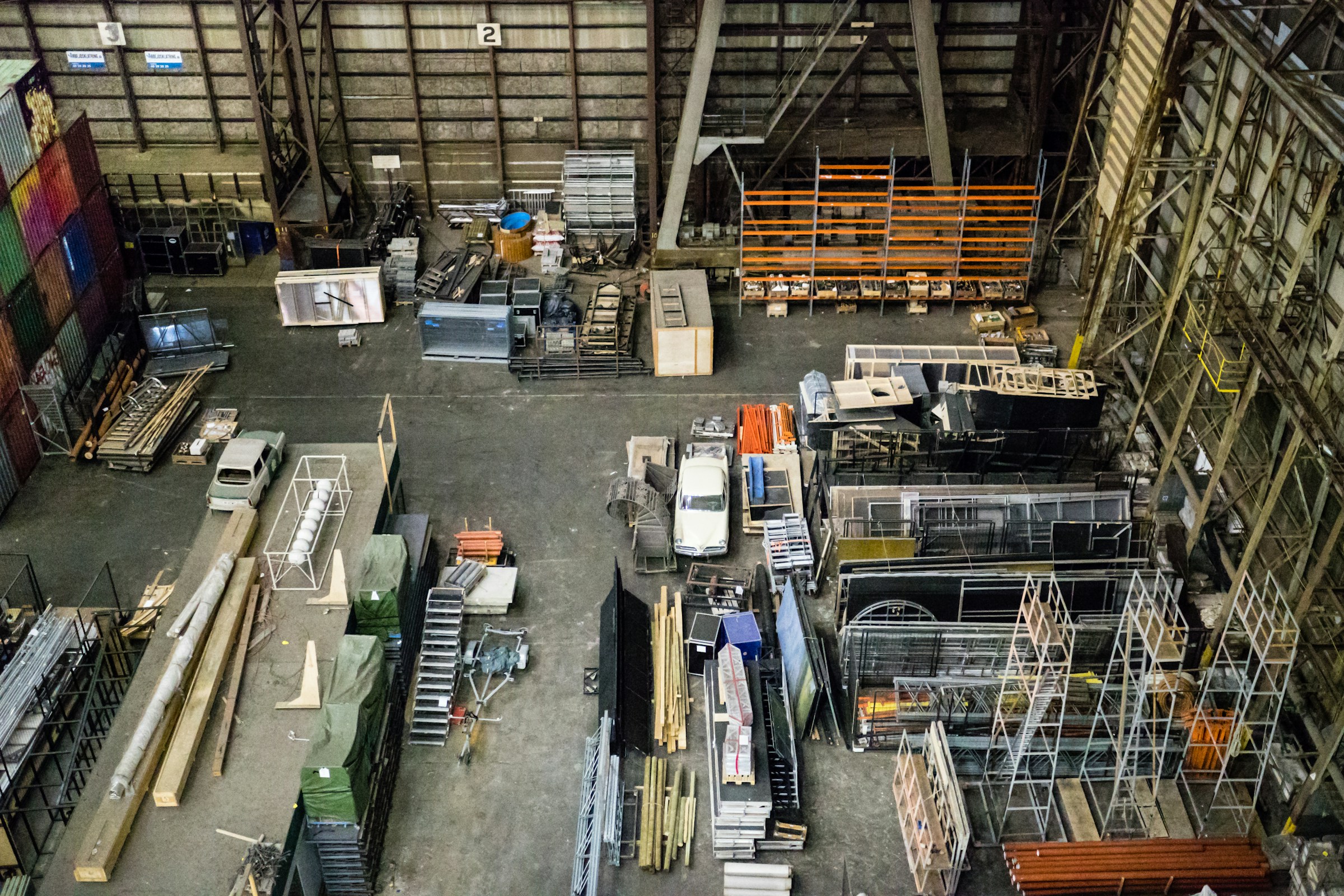How can you explore Manchester’s industrial heritage on a limited budget?

You might believe that exploring a city's industrial heritage requires a hefty budget. However, Manchester, with its rich industrial history, proves otherwise. This dynamic city in the heart of England offers an array of free or budget-friendly sites that let you dive deep into its historical roots. From industrial museums and art projects to heritage parks and libraries, Manchester's past is ready to be discovered. Let's journey through some of the best places where you can find traces of Manchester's industrial heritage without breaking the bank.
1. The Vibrant Industrial Museums
Manchester's industrial museums provide an excellent starting point for your journey through the city's industrial past. These museums, many of which offer free entry, showcase the city's history in a way that's both engaging and educational.
Lire également : How to find off-the-beaten-path seaside towns in the UK for a quiet getaway?
The Museum of Science and Industry (MSI), located in the heart of Manchester City, is a standout. Here, you can explore a vast collection of exhibits that trace the city's evolution from a rural society to an industrial powerhouse. The museum houses the world's oldest surviving passenger railway station and a replica of the world's first stored-program computer. What's more, admission to the MSI is absolutely free.
Another notable museum to visit is the People's History Museum. This museum, open every day, focuses on the social history of Manchester, showcasing how its people played a part in the city's industrial development. The museum's rich collection of political artifacts and personal testimonies bring to life the stories of the city's working class.
Sujet a lire : Where can you go wild pony spotting in the UK?
2. The Power of the Street Art Projects
Street art can offer an unconventional yet insightful look into Manchester's industrial heritage. The city's street art projects, many of which are free to explore, integrate historical narratives and contemporary art techniques to depict Manchester's industrial past.
Northern Quarter, a vibrant district known for its bohemian vibe, is a great place to start. Here, you'll find numerous murals and installations that reflect Manchester's history. For instance, the iconic 'Worker Bee' mural, a symbol of the city's industrious past, can be found on Tib Street.
Ancoats, another district enriched with industrial heritage, also hosts numerous street art projects. The 'Out House' project on Stevenson Square is a must-see. Here, local artists rotate their work every three months, often incorporating elements of Manchester's industrial history.
3. The Allure of Heritage Parks
Manchester's industrial heritage is not confined to museums and city streets. In fact, the city's parks also provide a refreshing way to explore its past. The green spaces are not just for relaxing; they also house industrial remnants and memorials that narrate stories of Manchester's industrial era.
One of the most notable is the Castlefield Urban Heritage Park, located in the city centre. This unique park is an open-air museum that features preserved industrial sites, such as the Roman Fort Mamucium and the Bridgewater Canal, the first artificial waterway in Britain.
Another great option is Heaton Park. It is one of the largest municipal parks in Europe and is home to a number of historical structures, including Heaton Hall, an 18th-century neoclassical house that reflects the wealth amassed during the industrial era.
4. The Richness of Libraries
Manchester's libraries are not just places for book lovers but also for history enthusiasts. The city's libraries house vast collections of records, maps, and photographs that document its industrial past.
The Central Library, located in St. Peter's Square, is the city's largest library. It houses a wide array of resources that explore Manchester's industrial heritage. Its Archives+ service offers a rich collection of photographs, maps, and films that document the city's history.
Chetham's Library, the oldest public library in the English-speaking world, is another must-visit. Here, you can find rare books and manuscripts that offer insights into Manchester's industrial era.
5. The Engaging History Centres
Manchester's history centres offer immersive experiences that bring the city's industrial past to life. These centres offer a wide range of activities, from guided tours and workshops to interactive exhibits.
The Manchester History Centre is a great place to start. This centre offers guided tours that take you through the city's important historical sites. The tours are led by knowledgeable guides who share fascinating stories about Manchester's industrial era. Most tours are free, but some require a small fee.
The Manchester Industrial Heritage Centre, located in the Ashton Canal Warehouse, is another great destination. This centre focuses on the city's industrial history, offering interactive exhibits and workshops that provide a hands-on experience of Manchester's past.
Manchester's industrial heritage is not hidden behind expensive admission fees or exclusive access. It's etched in the city's museums, libraries, parks, street art, and history centres, waiting to be discovered. So get ready to embark on your journey through Manchester's past without worrying about the cost. The city is open, inviting, and rich with history. Just grab a map, lace up your walking shoes, and step back in time to the great industrial age of Manchester.
6. The Industrial Archaeology Attractions
Delving into Manchester's industrial archaeology can provide a unique perspective on the city's past. The preserved industrial sites stand as a testament to the city's role as a centre of innovation during the industrial revolution.
The Pumphouse People's Museum, located in Castlefield, is a first-hand account of Manchester's industrial heritage. This former water pumping station, now a museum, chronicles the city’s gigantic leap from a rural settlement to an industrial behemoth with its impressive collection of machinery and informative exhibits. The best part is that the museum is free to enter.
Venture over to the historic Victoria Baths, an Edwardian swimming pool and Turkish Baths complex. This Grade II listed building is a sterling example of the city's municipal pride during the industrial age. Guided tours are available for a small fee and provide in-depth knowledge about the baths' history and restoration.
7. The Thrill of the Football Museum
Football is in the heart of Manchester's culture, and it's important to note how the industrial heritage of Manchester shaped this sport. The National Football Museum, located in the city centre, charts the history of the game in the city and how the industrial roots of Manchester United and Manchester City influenced their formation and growth.
The museum holds the world’s largest and finest collection of football-related items. From vintage jerseys to memorabilia, the museum showcases the evolution of the game in the city. The museum also offers a free enter policy, making it accessible for everyone interested in the industrial history of football in Manchester.
Conclusion
Manchester's industrial heritage is not only accessible but also diverse and fascinating. The city's museums, libraries, parks, and industrial sites offer a multitude of ways to explore its past. The street art in the Northern Quarter and Ancoats breathes life into the city's history, while the industrial archaeology attractions and the Football museum offer unique perspectives on Manchester's industrial era.
Your Manchester itinerary doesn't need to break the bank. Many of these attractions are free to enter or have affordable entry fees, making it easy to step back in time and discover the roots of this vibrant city. Whether you're interested in the science industry, the art gallery scene, the industrial buildings or the heritage sites, there's something to captivate everyone in Manchester.
Remember, exploring Manchester's industrial heritage is more than just a tour of historical sites — it's a journey into the soul of the city. From the bustling city centre to the peaceful parks, every corner of Manchester tells a story of its industrious past. So, lace up your walking shoes, grab a map, and let Manchester's past inspire your present.
